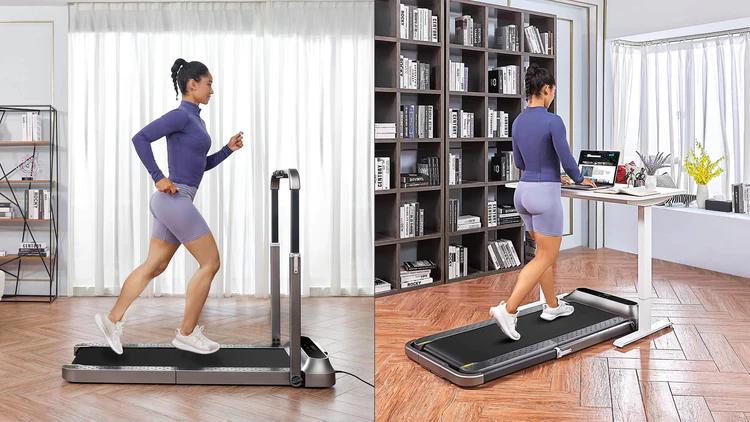So you’ve just gotten yourself a walking pad and you’re excited to start incorporating it into your fitness routine. But you might be wondering, how exactly do you use a walking pad? Don’t worry, we’ve got you covered. In this article, we will guide you step-by-step on how to navigate this innovative device and get the most out of your workouts. Whether you’re a beginner or a seasoned fitness enthusiast, using a walking pad is a breeze, and we’re here to show you how. So let’s lace up our sneakers and get moving!
Setting up the Walking Pad
Unboxing the Walking Pad
When you first receive your Walking Pad, the first step is to unbox it. Carefully remove all the components from the packaging, making sure to keep them organized and in good condition.
Checking the components
Before assembling the Walking Pad, it’s important to check that all the necessary components are included. These typically include the walking platform, the control panel, the safety clip, and the power cable. If any component is missing or damaged, contact the manufacturer for assistance.
Assembling the Walking Pad
Assembling the Walking Pad is a straightforward process. Start by placing the walking platform on a stable and level surface in your desired location. Then, attach the control panel to the designated area on the platform. Ensure that it is securely fastened.
Plugging in the power
To power your Walking Pad, plug the power cable into a nearby electrical outlet. Make sure the outlet is in good repair and can provide a stable power source. Avoid using extension cords or power strips, as they may not provide consistent power flow.
Connecting the Walking Pad to a device
Some Walking Pads can be connected to a mobile device or tablet via Bluetooth. This allows you to track your progress, adjust settings, and access additional features through a companion app. Consult the user manual for instructions on how to connect your specific model to a device.
Adjusting the speed settings
Before using the Walking Pad, it’s important to familiarize yourself with the speed settings. Most Walking Pads offer adjustable speed, allowing you to find a pace that suits your fitness level and goals. The speed can usually be adjusted using the control panel or the companion app.
Getting Started with the Walking Pad
Positioning the Walking Pad
Properly positioning your Walking Pad is essential for a comfortable and safe experience. Choose a location that offers enough space for the walking platform, ensuring that there are no obstacles or tripping hazards in the vicinity.
Putting on proper footwear
Before stepping onto the Walking Pad, it’s crucial to wear proper footwear. Choose shoes that provide adequate support and cushioning to minimize the risk of discomfort or injury during your walking session. Avoid walking barefoot or wearing inappropriate footwear such as high heels or sandals.
Warming up before walking
Just like any exercise routine, it’s important to warm up before walking on the pad. Engage in dynamic stretching exercises or light cardio activities for a few minutes to prepare your muscles and joints for the walking session. This helps prevent injuries and enhances your overall performance.
Getting on the Walking Pad
Once you’ve warmed up and put on appropriate footwear, it’s time to step onto the Walking Pad. Start by standing at the edge of the platform with one foot and carefully step onto it with the other foot. Maintain your balance and take a moment to get comfortable before starting your walk.
Maintaining proper posture
While walking on the Pad, it’s important to maintain proper posture to avoid strain and promote optimal form. Stand tall with your head up, shoulders relaxed, and core engaged. Keep your arms relaxed and swing them naturally as you walk. Avoid slouching or leaning too far forward or backward.
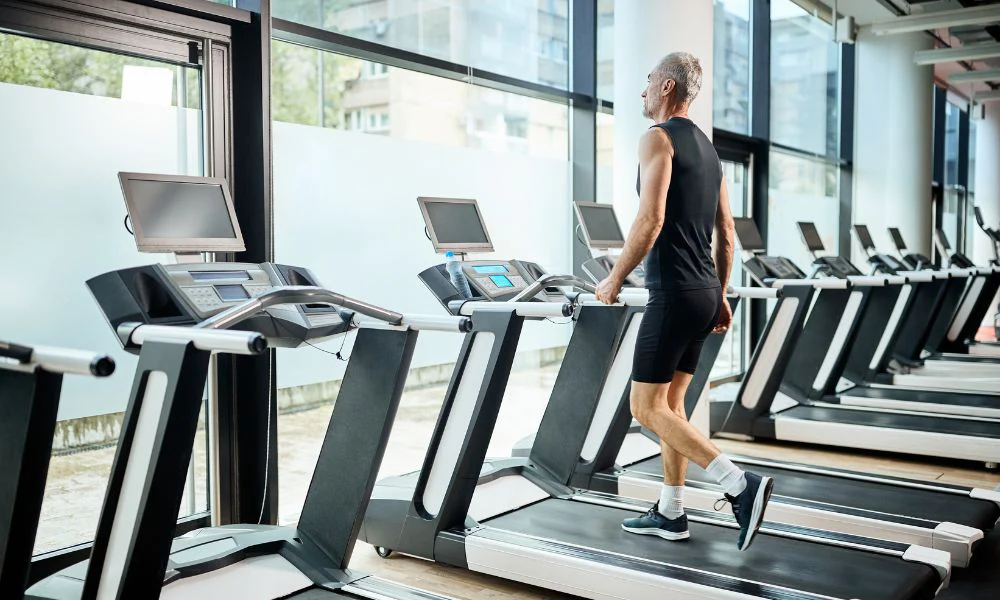
Using the Control Panel
Understanding the control buttons
Familiarize yourself with the control buttons on the Walking Pad’s control panel. These buttons allow you to power on and off the device, adjust the speed, switch between different modes, and monitor your progress. Consult the user manual for detailed information on the functionality of each button.
Powering on and off
To start using the Walking Pad, power it on by pressing the designated “power” button. Similarly, when you’re finished with your walking session, press the same button to power off the device. This helps conserve energy and prolong the lifespan of the Walking Pad.
Adjusting the speed
One of the key features of a Walking Pad is the ability to adjust the speed to suit your needs. Use the speed buttons on the control panel to increase or decrease the walking pace. Start at a comfortable speed and gradually increase it as you gain more confidence and strength.
Switching between modes
Some Walking Pads offer different modes that cater to specific preferences or fitness goals. These modes may include manual mode, preset programs, or custom modes. Explore the available options on the control panel and choose the mode that best aligns with your desired walking experience.
Monitoring your progress
Many Walking Pads come equipped with a display panel that shows important information such as walking speed, distance covered, time elapsed, and calories burned. Use this information to track your progress, set goals, and monitor your fitness journey.
Walking Techniques
Starting with a steady pace
When beginning your walking session on the Pad, start with a steady and comfortable pace. This allows your body to warm up and adapt to the movement. Avoid starting too quickly or forcefully, as it may put unnecessary strain on your muscles and joints.
Maintaining a consistent stride
As you walk on the Pad, focus on maintaining a consistent stride. Keep your steps even and controlled, avoiding any sudden or jerky movements. This helps promote balance, stability, and an efficient walking pattern.
Using your natural arm swing
Engage your upper body by allowing your arms to swing naturally as you walk. This helps maintain balance and rhythm while also engaging your core muscles. Allow your arms to swing freely, avoiding stiff or exaggerated movements.
Breathing techniques while walking
Pay attention to your breathing while walking on the Pad. Breathe deeply and rhythmically, inhaling through your nose and exhaling through your mouth. This helps oxygenate your muscles and can contribute to a more relaxed and enjoyable walking experience.
Changing walking intensity
To challenge yourself and maximize the benefits of walking, consider changing the intensity of your walking sessions. This can be done by increasing the speed, incorporating interval training (alternating fast and slow walking), or adding incline variations if your Walking Pad offers that feature.
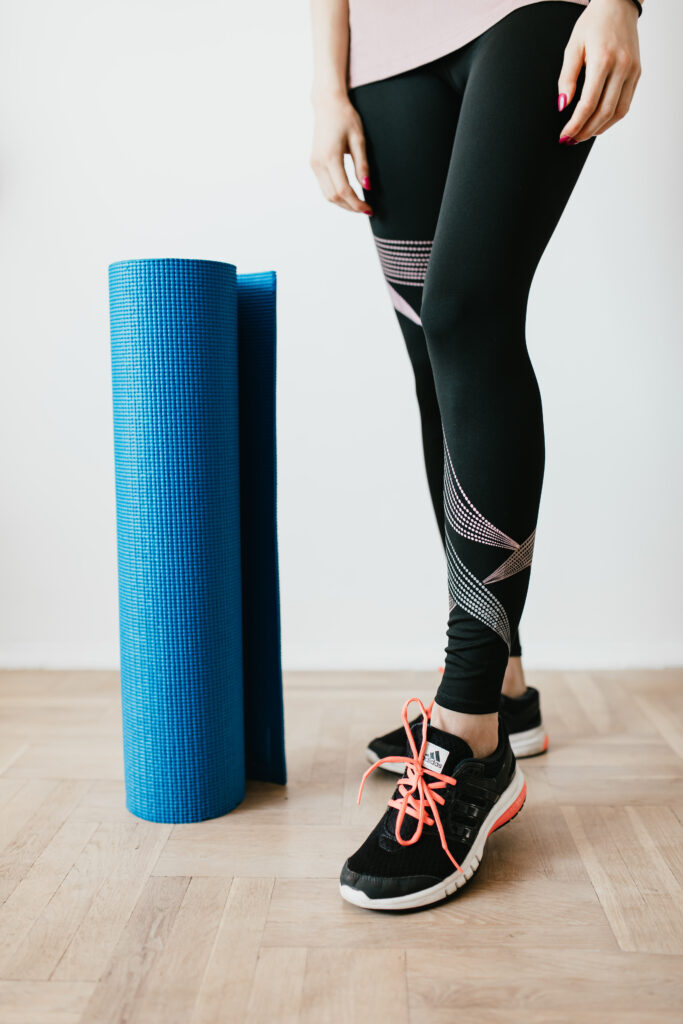
Safety Precautions
Using the safety clip
To ensure your safety, most Walking Pads come equipped with a safety clip. Attach the clip to your clothing while walking so that if you accidentally lose balance or fall, the clip will disconnect from the control panel, automatically stopping the device.
Avoiding distractions while walking
When using a Walking Pad, it’s essential to stay focused and avoid distractions. Refrain from using your mobile device, reading, or watching TV while walking, as these activities can compromise your balance and increase the risk of accidents.
Keeping the area clear around the Walking Pad
Maintain a clear and clutter-free area around your Walking Pad. Remove any objects, furniture, or obstacles that may interfere with your walking space. This helps prevent accidents and allows for a smooth and uninterrupted walking experience.
Staying hydrated
Even though you’re indoors, it’s important to stay hydrated while using the Walking Pad. Have a water bottle nearby and take sips of water regularly throughout your walking session to prevent dehydration and maintain optimal performance.
Gradually increasing speed and duration
While it’s tempting to push yourself to reach your fitness goals quickly, it’s crucial to progress gradually. Start with shorter walking sessions at a moderate pace and gradually increase both the speed and duration of your walks as your fitness level improves.
Maintenance and Care
Cleaning the Walking Pad
Regularly clean your Walking Pad to maintain its performance and longevity. Use a mild detergent and a soft cloth or sponge to wipe down the walking platform, control panel, and any other accessible parts. Avoid using excessive water or harsh cleaning agents.
Lubricating the belt
To ensure smooth and efficient operation, some Walking Pads require periodic lubrication. Check the user manual for instructions on lubricating the belt. Follow the recommended lubricants and application techniques to keep the belt in optimal condition.
Inspecting for any damage
Periodically inspect your Walking Pad for any signs of damage or wear. Check for loose screws, frayed cables, or any other indications of potential problems. If you notice any issues, contact the manufacturer for assistance or professional repair.
Replacing worn-out parts
Over time, certain parts of your Walking Pad may wear out and require replacement. This could include the belt, control panel buttons, or safety clip. Consult the user manual or contact the manufacturer for guidance on how to replace these parts safely and effectively.
Storing the Walking Pad properly
If you need to temporarily store your Walking Pad, make sure to do so properly to prevent damage. Follow the manufacturer’s instructions for folding, disassembling, or storing the device. Choose a clean and dry storage space that is protected from excessive heat, moisture, or dust.
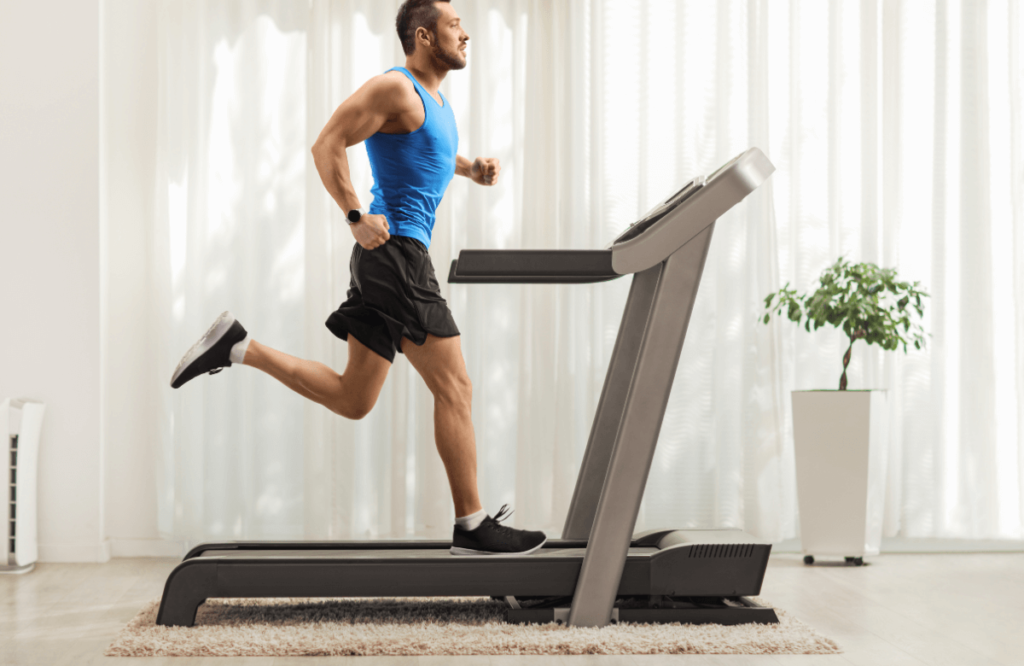
Benefits of Using a Walking Pad
Improves cardiovascular health
Walking on a regular basis, whether outdoors or indoors on a Walking Pad, positively impacts cardiovascular health. It increases heart rate, improves blood circulation, and strengthens the heart muscle, reducing the risk of heart diseases.
Enhances weight loss
Walking is an effective exercise for weight loss, and using a Walking Pad can further enhance these results. By incorporating regular walking sessions into your routine, you can burn calories, boost metabolism, and contribute to healthy weight management.
Increases overall fitness
Walking on a Walking Pad is a low-impact exercise that engages multiple muscle groups, improves endurance, and enhances overall fitness levels. It can be a part of a well-rounded fitness routine, complementing other forms of exercise such as strength training or flexibility exercises.
Reduces joint impact
Compared to high-impact activities like running, walking on a Walking Pad puts less stress on the joints while still providing cardiovascular benefits. This makes it an excellent option for individuals with joint conditions or those seeking a low-impact exercise option.
Provides convenience for indoor walking
Having a Walking Pad at home provides the convenience of walking whenever you want, regardless of weather conditions or time constraints. You can easily fit in short or long walking sessions without leaving your home, making it a time-efficient and accessible fitness option.
FAQs about Walking Pads
How much space is needed for a Walking Pad?
The space needed for a Walking Pad varies depending on the model and size. Check the product specifications or consult the user manual for the recommended space dimensions. Ensure that you have enough room for comfortable walking and safe operation.
Can I use a Walking Pad with a standing desk?
Yes, many Walking Pads are designed to be used with standing desks. They offer a convenient way to incorporate movement and activity into your workday. Follow the manufacturer’s instructions for properly positioning the Walking Pad with your standing desk.
What is the weight limit for a Walking Pad?
The weight limit for a Walking Pad can vary depending on the model and manufacturer. Refer to the product specifications or user manual for the specific weight limit. It’s important to ensure that the Walking Pad can accommodate your weight to avoid any damage or safety issues.
Is it noisy to use a Walking Pad?
Generally, Walking Pads operate quietly, producing minimal noise. However, some models may emit a low level of noise during operation. Refer to product reviews or consult the manufacturer to get an idea of the noise level of a specific Walking Pad model.
Can I fold and store the Walking Pad?
Many Walking Pads are designed with space-saving features that allow for easy folding and storage. Check the product specifications or user manual to determine if your Walking Pad can be folded and stored. Follow the manufacturer’s instructions for proper folding and storage techniques.
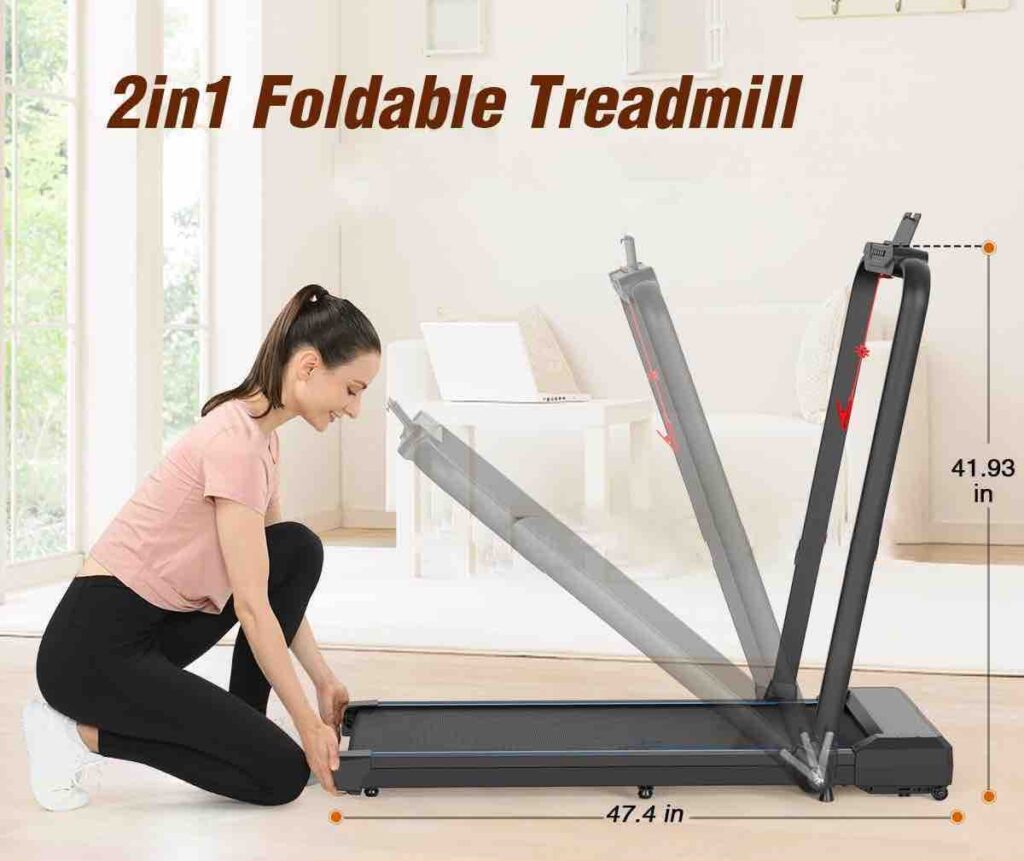
Tips for a Better Walking Experience
Listening to music or podcasts
To make your walking sessions more enjoyable, consider listening to your favorite music, podcasts, or audiobooks. Use wireless headphones or speakers to ensure freedom of movement and keep yourself entertained or engaged during your walk.
Watching TV or videos while walking
If you have a TV or computer nearby, you can combine your walking session with your favorite TV shows, movies, or online videos. Set up your Walking Pad in view of the screen and enjoy some entertainment while staying active.
Setting goals and tracking progress
To stay motivated and get the most out of your walking sessions, set goals and track your progress. Whether it’s increasing your walking speed, covering a longer distance, or simply aiming for a certain number of steps, having goals can help you stay focused and measure your achievements.
Including interval training
To boost your walking routine, consider incorporating interval training. Alternate between periods of higher intensity, such as brisk walking or jogging, and periods of lower intensity, such as a leisurely stroll. Interval training can increase calorie burn, elevate your heart rate, and challenge your cardiovascular system.
Adding incline variations
If your Walking Pad offers incline settings, take advantage of them to simulate walking uphill. Walking uphill engages different muscles and adds intensity to your workout. Gradually increase the incline as you become more comfortable and capable.
Conclusion
Summary of using a Walking Pad
Using a Walking Pad offers a convenient and effective way to incorporate walking into your daily routine. With proper setup, maintenance, and care, you can enjoy the benefits of cardiovascular exercise, weight loss, improved fitness, and reduced joint impact.
Final thoughts on the benefits
The benefits of using a Walking Pad extend beyond physical health. Walking can also have positive impacts on mental and emotional well-being. It can reduce stress, boost mood, improve sleep quality, and provide a sense of accomplishment.
Encouragement to start using a Walking Pad
If you haven’t already, now is the perfect time to start using a Walking Pad. With its ease of use, versatility, and numerous health benefits, it’s a great addition to any fitness regime. Start at your own pace, set achievable goals, and enjoy the journey toward a healthier and more active lifestyle.
Key factors for successful usage
To optimize your experience with a Walking Pad, remember to prioritize safety, maintain proper form and posture, gradually increase intensity, and stay consistent with your walking routine. With commitment and dedication, you’ll reap the rewards of improved health and well-being. Happy walking!

